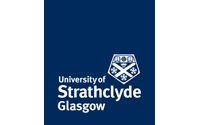Maintenance strategies are the backbone of operational efficiency in industries ranging from manufacturing to energy production. As organizations strive to minimize downtime, reduce costs, and enhance asset performance, the choice between Total Productive Maintenance (TPM) and Reliability Centered Maintenance (RCM) becomes critical. Both methodologies offer unique approaches to maintenance management, yet their application often depends on organizational goals, resource availability, and operational complexity. This course delves into the principles, tools, and techniques of TPM and RCM, empowering participants to make informed decisions about which strategy aligns best with their organizational needs.
The relevance of TPM and RCM cannot be overstated in an era where asset reliability is directly linked to competitive advantage. For instance, a case study from Toyota highlights how TPM helped the company achieve world-class manufacturing standards by fostering a culture of continuous improvement and employee involvement. On the other hand, the aviation industry has long relied on RCM to ensure the safety and reliability of aircraft systems, as seen in British Airways' adoption of RCM principles to optimize maintenance schedules. These examples underscore the importance of selecting the right maintenance strategy to address specific challenges and opportunities within an organization.
Despite their proven effectiveness, many organizations struggle to implement TPM or RCM due to a lack of understanding or misalignment with operational goals. Common challenges include resistance to change, insufficient training, and the inability to integrate these methodologies into existing workflows. This course addresses these gaps by providing a comprehensive framework for evaluating and implementing TPM and RCM, ensuring that participants can overcome barriers and drive sustainable improvements in their organizations.
Mastering TPM and RCM offers significant benefits for both individuals and organizations. For professionals, it enhances career prospects by equipping them with sought-after skills in maintenance management and operational excellence. Organizations, on the other hand, benefit from reduced downtime, improved asset utilization, and enhanced safety standards. Drawing on established theories such as Lean Manufacturing and Failure Mode and Effects Analysis (FMEA), this course ensures that participants gain a deep understanding of the theoretical underpinnings and practical applications of TPM and RCM.
Consider the story of a mid-sized manufacturing plant that struggled with frequent equipment breakdowns and escalating maintenance costs. By adopting TPM principles, the plant not only reduced downtime by 30% but also fostered a culture of ownership and accountability among its workforce. Similarly, a utility company facing regulatory scrutiny turned to RCM to systematically identify and mitigate risks, resulting in compliance and improved system reliability. These real-world examples illustrate the transformative potential of TPM and RCM when implemented effectively.
This course is designed to equip participants with the knowledge and tools needed to navigate the complexities of modern maintenance strategies. Whether you are a seasoned professional seeking to refine your skills or a newcomer eager to learn, this program will provide the insights and practical guidance necessary to excel in the field of maintenance management. By blending theory with hands-on exercises and case studies, the course ensures that participants leave with actionable strategies they can immediately apply in their roles.




















































